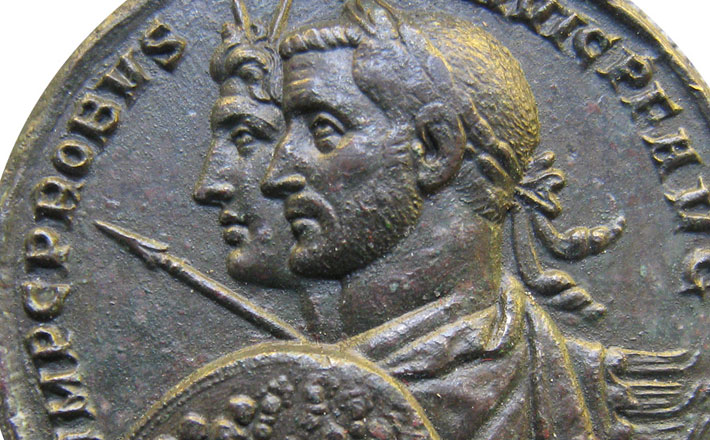Commentary on Isaiah 45:1-7
Second Isaiah casts a broad theological vision in Isa 45:1-7, proclaiming God’s power over all of creation, over the affairs of the nations — not just those of the people of Israel — and even asserting God’s power to create both good and evil (verse 7).
The last might sound a startling claim, but it’s a claim that serves the prophet’s larger purpose, which is to give the exiles hope that all of this divine power is dedicated to their restoration and renewal.
Isaiah 45:1-7 is part of a larger block of prophetic poetry that begins in 44:23 and concludes at 45:8. The poem is nicely balanced. In the opening verse of the poem, 44:23, the prophet enjoins the heavens, the depths of the earth, and the mountains to sing because God has redeemed Israel. At the end of the poem, in 45:8, the prophet calls to the heavens to rain down with righteousness and to the earth to open up so that righteousness can grow because “I the LORD have created it” (that is, righteousness). The entire poem is thus encapsulated by this idea that creation serves as herald of the people’s redemption as well as the fertile soil in which the redemption will grow. The world is a stage, to borrow a different metaphor, for the might acts of God on behalf of the people.
The prophet highlights this point by moving into the imagery of creation. In 44:24 and 45:6-7, the prophet draws on the myths of creation to assert something bolder than simple dominance: singularity. Three times in 44:24, the prophet emphasizes that YHWH alone made heaven and earth. In 45:5-6, the prophet says four times that there is no other god but YHWH and then declares in verse 7 that YHWH is the one who forms light and creates darkness. YHWH is solely responsible for the ordering of the world. Thus, the prophet challenges the theological viewpoint of much of the ancient Near East that considered the wars between nations to reflect the wars between gods. When a nation was defeated so was their god. Second Isaiah says there can be no battle between gods because there is only one god. There can be no battle when there is no opposition. Even “weal” and “woe” are under the control of YHWH, who creates them.
While the poem is bookended with the theme of YHWH’s power over all of creation, the prophet places at the center of the poem a proclamation about what God is accomplishing on what is, by comparison, a much smaller scale: the movement of armies. Considered alongside God’s power to create, God’s power to effect change through historical events is not a startling claim. It is somewhat startling is that the prophet has God call the leader of Persia, Cyrus, “my shepherd” and “my anointed.” Cyrus is not one of the chosen people and is the only non-Israelite to be called “my anointed,” but by using this language, the prophet makes clear that God has selected Cyrus for a special purpose. Cyrus is called — just as the heavens and earth are called in 44:23 and 45:8 — in order to serve God’s redemptive purposes. He may not be aware of it, but he is the tool of YHWH, nonetheless.
Isaiah 45:1-7 is a portion of a prophetic poem that is about the dominance of YHWH over the created world as well as over human history. One might dismiss the prophet’s word to the people as triumphalist and arrogant, but that dismissal ignores the fact that the prophet was writing to a people in exile, attempting to inspire hope by reminding them of their ancient faith and calling on them to see that ancient faith at work in their contemporary lives. They are called to look for the signs that YHWH is at work, and they are called to look in surprising places for those signs. Even a Persian king who doesn’t know the name YHWH can be YHWH’s instrument. If God is the creator of the world, hope can grow anywhere in the heavens or on the earth.
We live in an anxious time. Recent events have left many of us holding our breath when we turn to the news, anticipating the next disaster. It is terribly important to remind our fellow Christians that we are a people of hope and that God did not abandon the exiles of Judah and does not abandon us either. Our ancient faith bears witness to the power of God to redeem and restore sometimes in unexpected ways. We have received this faith and are called to live into it just as the writer of Second Isaiah called the exiles to live into it. To do so requires us to be a people always looking for the signs of God’s work in the world. It requires us to be a people of hope.


October 22, 2017